Business
43 Lessons Learned From Some Of The Most Popular Entrepreneurs
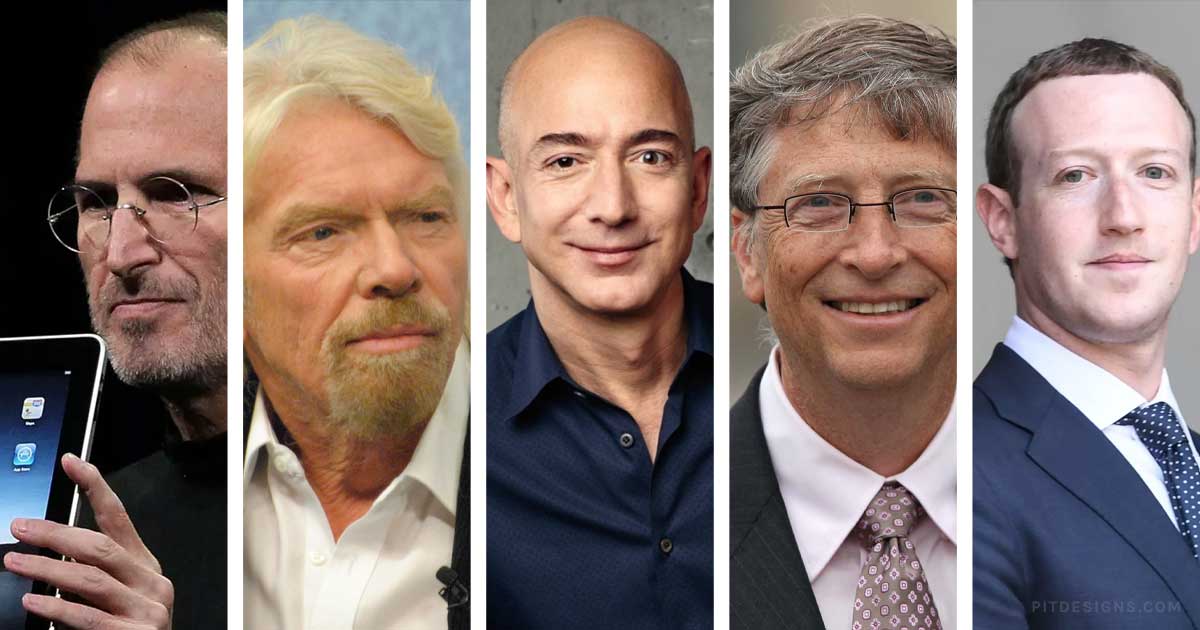
Hey there, future entrepreneur! Looking for inspiration and wisdom to fuel your business journey? Learning from successful entrepreneurs can provide invaluable insights. Here are 43 lessons learned from some of the most popular entrepreneurs.
1. Believe in Yourself
Richard Branson, founder of Virgin Group, emphasizes the importance of self-belief. Trusting in your abilities can help you overcome obstacles and achieve your goals. Read more about Richard Branson’s journey.
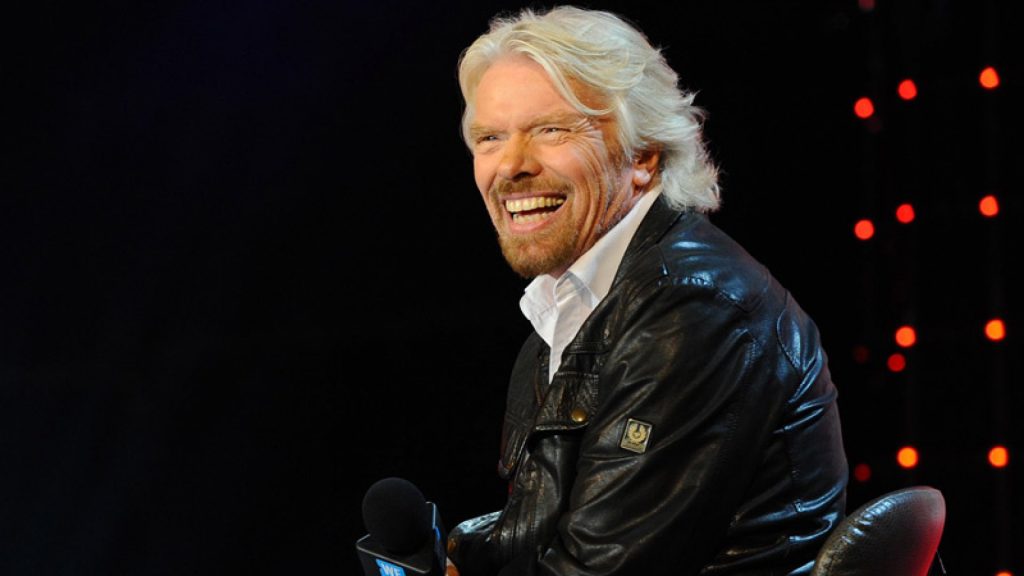
2. Embrace Failure
Elon Musk, CEO of Tesla and SpaceX, views failure as a stepping stone to success. Don’t be afraid to fail; instead, learn from your mistakes and keep moving forward. Learn more from Elon Musk.

3. Stay Persistent
Steve Jobs, co-founder of Apple, believed in the power of persistence. Keep pushing towards your goals, even when the going gets tough. Discover more about Steve Jobs.
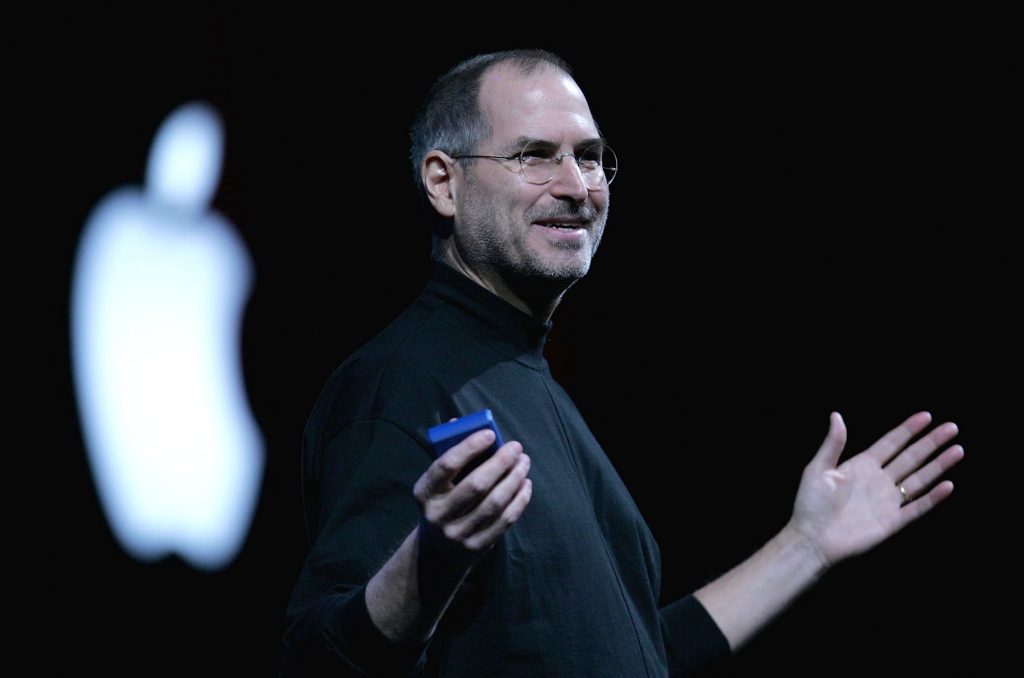
4. Focus on the Customer
Jeff Bezos, founder of Amazon, built his empire by prioritizing customer satisfaction. Always focus on delivering value to your customers. Explore Jeff Bezos’ principles.
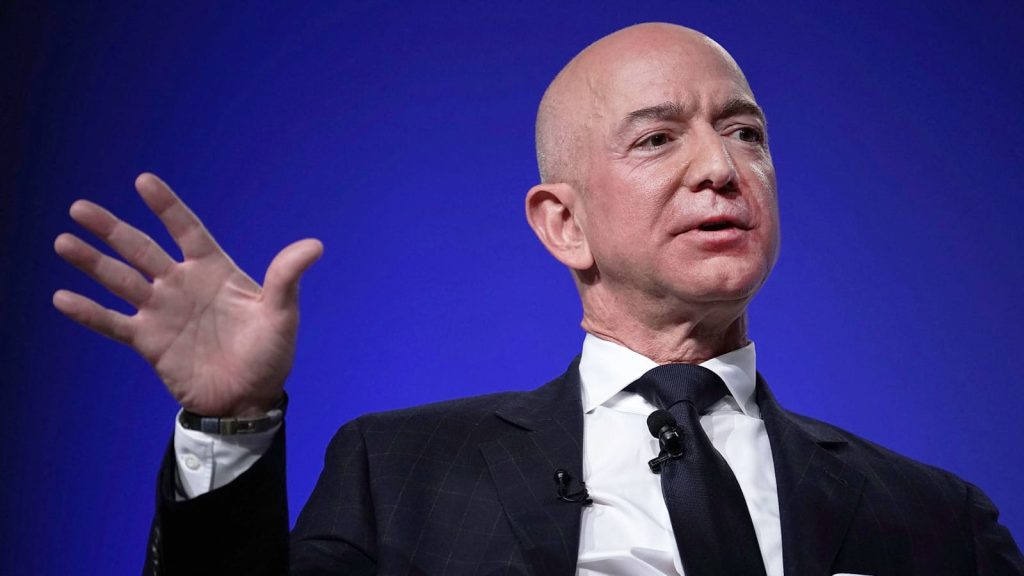
5. Innovate Constantly
Bill Gates, co-founder of Microsoft, stresses the importance of innovation. Continuously seek new ways to improve and stay ahead of the competition. Read about Bill Gates’ innovations.

6. Network Effectively
Networking is key to business growth. Mark Zuckerberg, co-founder of Facebook, used his connections to build a global platform. Learn networking tips from Mark Zuckerberg.
7. Manage Your Time Wisely
Time management is crucial for success. Oprah Winfrey, media mogul, efficiently manages her time to balance her various ventures. Get Oprah Winfrey’s time management tips.

8. Be Adaptable
Adaptability is vital in a changing market. Sara Blakely, founder of Spanx, adapted her business model to meet customer needs. Read Sara Blakely’s story.
9. Stay Humble
Humility can take you far. Warren Buffett, CEO of Berkshire Hathaway, is known for his modesty despite his immense success. Learn more from Warren Buffett.
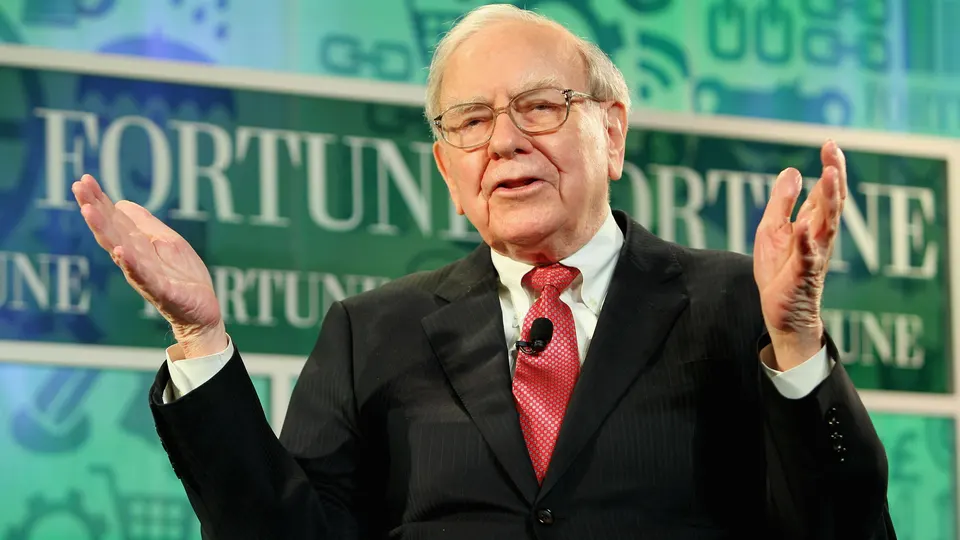
10. Take Risks
Entrepreneurship involves risk-taking. Larry Page, co-founder of Google, took significant risks to create one of the world’s most influential companies. Explore Larry Page’s journey.
11. Build a Strong Team
A strong team is essential for success. Reid Hoffman, co-founder of LinkedIn, credits his team for his company’s growth. Discover Reid Hoffman’s team-building tips.

12. Be Passionate
Passion drives success. Howard Schultz, former CEO of Starbucks, built his business around his love for coffee. Read more about Howard Schultz.
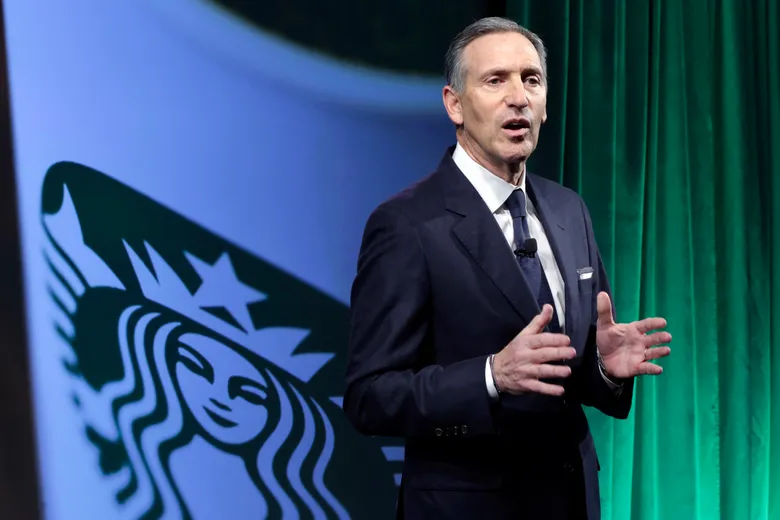
13. Stay Focused
Focus is key to achieving goals. Sheryl Sandberg, COO of Facebook, maintains laser-sharp focus to drive her initiatives. Learn from Sheryl Sandberg.
14. Be Resilient
Resilience helps you bounce back from setbacks. Jack Ma, founder of Alibaba, overcame numerous rejections before achieving success. Discover Jack Ma’s resilience.
15. Learn Continuously
Continuous learning fuels growth. Tony Robbins, motivational speaker, constantly seeks new knowledge to improve his teachings. Get Tony Robbins’ learning tips.
16. Think Big
Think big to achieve big results. Elon Musk’s ambitious vision for space exploration has revolutionized the industry. Learn more about Elon Musk’s big thinking.
17. Stay Grounded
Staying grounded keeps you connected to your roots. Indra Nooyi, former CEO of PepsiCo, maintains humility despite her success. Read about Indra Nooyi.
18. Embrace Change
Embracing change is crucial for growth. Satya Nadella, CEO of Microsoft, led the company’s successful transformation. Explore Satya Nadella’s leadership.
19. Be Honest
Honesty builds trust. John Mackey, co-founder of Whole Foods, emphasizes transparency in business practices. Learn from John Mackey.
20. Stay Curious
Curiosity drives innovation. Steve Wozniak, co-founder of Apple, constantly explores new ideas and technologies. Read more about Steve Wozniak.
21. Provide Value
Providing value to customers is key. Richard Branson built Virgin on the principle of delivering exceptional customer experiences. Explore Richard Branson’s philosophy.
22. Be Generous
Generosity can enhance your reputation. Bill Gates’ philanthropy through the Bill & Melinda Gates Foundation has made a global impact. Learn more about Bill Gates’ philanthropy.
23. Stay Disciplined
Discipline is essential for success. Jeff Bezos maintains a strict routine to manage his responsibilities effectively. Discover Jeff Bezos’ discipline tips.
24. Be Patient
Patience is key to long-term success. Warren Buffett advises investing for the long haul rather than seeking quick wins. Get Warren Buffett’s investment advice.
25. Embrace Technology
Leveraging technology can drive innovation. Elon Musk uses cutting-edge technology to push the boundaries of what’s possible. Read about Elon Musk’s technological advancements.
26. Stay Authentic
Authenticity resonates with customers. Oprah Winfrey’s genuine approach has endeared her to millions. Learn from Oprah Winfrey’s authenticity.
27. Keep Learning
Never stop learning. Mark Zuckerberg continuously seeks new knowledge to improve Facebook’s offerings. Discover Mark Zuckerberg’s learning approach.
28. Adapt Quickly
Adaptability is vital in a fast-changing market. Sara Blakely quickly adapts her strategies to meet market demands. Read about Sara Blakely’s adaptability.
29. Stay Positive
A positive attitude can overcome challenges. Tony Robbins emphasizes the power of positive thinking in achieving success. Get Tony Robbins’ positivity tips.
30. Be Transparent
Transparency builds trust with stakeholders. John Mackey practices open communication with employees and customers. Learn from John Mackey’s transparency.
31. Be Customer-Centric
Put customers at the center of your business. Howard Schultz built Starbucks by focusing on the customer experience. Explore Howard Schultz’s customer-centric approach.
32. Embrace Diversity
Diversity drives innovation. Sheryl Sandberg advocates for diversity and inclusion in the workplace. Learn from Sheryl Sandberg’s diversity efforts.
33. Stay Humble
Humility keeps you grounded. Warren Buffett’s modesty and humility have earned him widespread respect. Read more about Warren Buffett.
34. Be Fearless
Fearlessness can lead to groundbreaking innovations. Larry Page’s bold vision for Google has transformed the tech industry. Explore Larry Page’s fearless approach.
35. Stay Focused
Maintaining focus is key to achieving your goals. Jeff Bezos’ focus on customer satisfaction has driven Amazon’s success. Discover Jeff Bezos’ focus strategy.
36. Be Resilient
Resilience helps you bounce back from setbacks. Jack Ma’s resilience has been instrumental in Alibaba’s growth. Learn from Jack Ma’s resilience.
37. Network Effectively
Effective networking can open doors. Reid Hoffman’s connections have played a crucial role in LinkedIn’s success. Read Reid Hoffman’s networking tips.
38. Stay Curious
Curiosity drives continuous improvement. Steve Wozniak’s curiosity has fueled his innovations. Discover Steve Wozniak’s curiosity.
39. Embrace Change
Embracing change is essential for growth. Satya Nadella’s leadership has transformed Microsoft. Explore Satya Nadella’s approach to change.
40. Be Passionate
Passion fuels success. Oprah Winfrey’s passion for storytelling has made her a media icon. Learn from Oprah Winfrey’s passion.
41. Stay Disciplined
Discipline is key to managing multiple ventures. Richard Branson’s discipline has driven Virgin’s growth. Get Richard Branson’s discipline tips.
42. Be Generous
Generosity can enhance your impact. Bill Gates’ philanthropic efforts have made a significant difference globally. Learn more about Bill Gates’ generosity.
43. Be Honest
Honesty builds lasting relationships. John Mackey’s transparent approach has earned customer loyalty. Explore John Mackey’s honesty.
Conclusion
These lessons from successful entrepreneurs offer valuable insights into building a successful business. By embracing qualities like resilience, innovation, and customer focus, you can navigate the challenges of entrepreneurship and achieve your goals.
Ready to apply these lessons to your business journey? Visit Wave News NG for more tips and resources on entrepreneurship and business growth.
You may like
Business
Tax Reform Bills scales second reading in Senate

The Senate has passed for second reading fours bills designed to reform Nigeria’s tax system.
This followed the presentation of the general principles of the bills by the Senate Leader, Opeyemi Bamidele (APC-Ekiti), during plenary on Thursday.
The four bills, which were first read on Oct. 30, are:o Joint Revenue Board of Nigeria Establishment Bill, 2024; Nigeria Revenue Service Establishment Bill, 2024; Nigeria Tax Administration Bill, 2024 and the Nigeria Tax Bill, 2024.
Leading the debate on the general principles of the bills, Opeyemi said
that they represented a significant move toward overhauling the country’s tax system.
He said that the bills were aimed at simplifying the tax landscape, reducing the burden on small business and streamlining how taxes would be collected.
According to him, the four bills seek to ensure uniformity in tax revenue administration in the country, in accordance with the provisions of the constitution and eliminate the incidence of double taxation across the country.
He said that the bills also sought to deploy taxation as a tool for encouraging private sector investments in critical industries and boosting individuals’ disposable incomes through targetted tax exemptions, as captured in the various bills.
“In the area of tax exemptions, there is a proposal to exempt small business operators, while those with annual turnover of N50 million or less are equally exempted from payment of taxes.
“Similarly, there is a reduction in company’s income tax from the current 30 per cent to 25 per cent by 2026.
“As part of deliberate attempt to curtail incidence of double taxation and multiplicity of taxes and levies, multiple taxes hitherto paid by companies under various tax heads namely: 2.5 per cent education tax, 0.25 per cent NASENI tax have been harmonised into a development levy of two per cent.
“This will be applied by 2030 to fund the newly-established student loan scheme which will benefit many Nigerian youths.
” Unlike like what is obtainable under the existing tax regime whereby the Federal Government takes a lion share of VAT revenues, it is proposed that the sharing formula should allow state governments to share 55 per cent of VAT revenue from the current 15 per cent to 10 per cent sharing formula,” he said.
He, however, said local governments share of VAT revenue remained unaffected.
“Relatedly, basic items consumed by Nigerian households, such as food items, medical services and pharmaceuticals, educational fees, electricity, etc. are exempted from VAT.
“Again, as part of efforts to ease the administration of income taxes and levies across the federation, there is a reasonable effort made to consolidate core tax statutes and related tax legislations,” he said.
The senator said that the bills contained innovative and people-oriented proposals as part of government’s deliberate fiscal and tax reform measures.
He said that the bills were meant to cushion the effects of the ongoing broader economic policies, such as the removal of subsidy on petroleum products.
Opeyemi said that the innovations were also tailored toward implementing cost-reflective electricity tariffs in the power sector.
He urged the lawmakers to see the bills as part of the required legislative intervention to support the ongoing fiscal and tax reform measures needed to reposition the Nigerian economy for growth and productivity.
“These bills should be considered with great sense of patriotism and exercise of the powers of the National Assembly under Section 59 of the 1999 Constitution regarding imposition of taxes.
“I, therefore, urge my distinguished colleagues to support the bills for second reading.
Contributing, Sen. Seriake Dickson (PDP-Bayelsa) lauded the bills, saying that they would entrench the much-canvassed fiscal federalism.
However, Sen.Ali Ndume (APC-Borno) said although he was not against reforms and tax reforms in Nigeria, he, however, said that the timing of the bills was the issue.
Ndume said that the issue of derivation proposed in the bills was contradictory, stressing that the constitution needed to be amended for some of the proposals in the bills to sail through.
He said that in inline with the positions of the governors and traditional rulers, the bills should be withdrawn for further consultations.
Ndume specifically said that the issue of VAT and derivation should be addressed, adding that senate should consult first before further legislative inputs could be made on the bills.
However, Senate Chief Whip, Sen. Mohammed Monguno (APC-Borno), vehemently disagreed with Ndume, saying that his position negated the senate rule on processes of lawmaking.
He said Section 60 of 1999 Constitution, as amended, empowered the senate to regulate its procedure.
According to Monguno, the process of law-making, as stated in the senate’s rule, was unambiguous, nothing that after second reading, the bill will be transmitted for public hearing, where Nigerians of all groups will be free to make their inputs on the bills.
The senator said that Ndume’s suggestion for senate to withdraw the bills was foreign to legislative process, describing the suggestion as an academic exercise that was not worthy of legislative consideration.
According to him, the bills are noble and pro-people, as it will reduce the tax burden on Nigerians.
President of the Senate, Godswill Akpabio, after the reading of the bills for the second time, said all concerned stakeholders, should be invited at the public hearing to make their inputs before final clause-by-clause consideration by the senate.
He consequently referred the bills to Senate Committee on Finance for further legislative inputs, with a directive to return back to plenary in six weeks.
Business
UBA to begin full banking operations in France

The United Bank for Africa has signed a deal to commence full banking operations in France.
In a statement late Thursday, the banking group said the landmark business cooperation agreement with the French Finance Minister, Antoine Armand, was part of President Bola Tinubu’s state visit to France.
During the visit, the Chairman of UBA Group, Tony Elumelu, in the presence of Tinubu and the President of France, Emmanuel Macron, signed the agreement indicative of support by the French Government for the development of UBA’s full banking operations in France.
Speaking at the signing ceremony, Elumelu said, “This partnership reinforces our commitment to seamless international banking services for our customers, not just across the 11 Francophone African countries we serve, but Africa as a whole and French and European customers transacting with Africa.
“Expanding into France is a natural progression, with Paris serving as our European Union hub as we continue to bring Africa and the world together through innovative financial solutions. Paris will join London, New York, and Dubai as a critical component of our unique global network.”Related News
With this agreement, UBA joins tier-1 banks in Nigeria, running with a banking presence in France.
Tinubu arrived in France on Thursday for a two-day state visit, with both sides looking to deepen their economic and diplomatic ties.
It is the first official state visit to Paris by a Nigerian leader in over two decades.
Macron welcomed his counterpart with a warm greeting in Nigerian Pidgin English, stressing the cultural connection between the two leaders.
“Na big honour for France to welcome you for dis state visit,” he wrote on social media.
Business
CBN sets new guidelines for FX trading
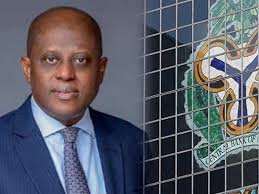
The Central Bank of Nigeria (CBN) on Wednesday announced new guidelines for foreign exchange (FX) trading through the Electronic Foreign Exchange Matching System (EFEMS).
CBN’s director of the Financial Markets Department, Omolara Duke, made this in a statement, stating that the new guidelines aim to ensure transparency, fairness, and compliance in FX trading.
The minimum tradable amount is set at $100,000; CBN disclosed this in a tweet, adding it will be effective December 2, 2024.
“The CBN transitions FX trading to Bloomberg BMatch, promising enhanced transparency, fair pricing and operational efficiency, effective December 2, 2024,” the apex bank tweeted.
CBN also stated that the Bloomberg BMatch platform will boost market integrity, enhance price discovery, and ensure seamless FX trading among participants.
General Provisions
1. These guidelines regulate the operations of interbank FX trading via the Electronic Foreign Exchange Matching System (EFEMS),
2. The purpose is to ensure transparent, fair, and efficient FX trading, minimising counterparty risk and ensuring compliance with Central Bank of Nigeria (CBN) regulations. and greater
3. The CBN has approved the Bloomberg BMatch as the designated platform to support the EFEMS for interbank trading. advised to
4. All market participants are required to comply strictly with these guidelines and any amendments as may be issued by the CBN from time to time.
Trading and Operational Requirements
1 Trading hours shall be from 09:00 hrs to 16:00 hrs WAT on business days.
2 All unmatched orders will be cleared at the market’s close and may be resubmitted on the
following business day.
3 Quotes on EFEMS will remain anonymous until matched. Once matched, counterparty details will be revealed for settlement purposes.
4 All trades consummated on EFEMS are binding, unless canceled by mutual agreement of both parties with written approval from the CBN.
5 The minimum tradable amount is US$100,000.00, with incremental clip sizes of US$50,000.00.
6 Participants must set credit and settlement limits for other counterparties in the system.
Transactions exceeding these limits will not be executed.
7 Participants must have adequate credit and settlement limit set for the CBN as its counterparty bank.
8 Participants are required to comply with the Nigerian Foreign Exchange Code and other CBN regulations.
9 EFEMS shall be used exclusively for executing spot FX transactions involving the Nigerian Naira (NGN) against the United States Dollar (USD). Other currency pairs may be introduced upon the CBN’s directive.
10 Transactions on EFEMS must be settled through approved settlement systems, with participants
bearing responsibility for their obligations.
1 The platform provider must offer real-time support to address system issues. In the event of prolonged downtime, alternative trading protocols will be activated as prescribed by the CBN.
12 Any participant defaulting on settlement obligations will face penalties as determined by the CBN.
Governance and Data Reporting
1 The CBN shall monitor all transactions on EFEMS to ensure market integrity and transparency.
2 Participants must submit daily transaction reports only to the CBN, detailing trade volumes, counterparties, and settlement status. All whole/interbank trades conducted between Authorised Dealers and non-banks participants on telephone and other acceptable channels in the market must be confirmed on the RFQ and reported on EFEMS immediately. Any deal that falls outside the EFEMS parameters, such as same day or next day settlements delivery vs payment transactions where limits are exceeded and deals with non-standard amount should be booked via the RFQ functionality and uploaded automatically to the FX blotter not more than 10 minutes after the completion of the trade.
3 All trade data generated on EFEMS shall be owned by the CBN. The CBN reserves the right to publish aggregated or disaggregated data for market analysis, subject to confidentiality agreements.
4 The CBN reserves the right to review EFEMS operations, including participant activities and system efficiency, periodically.
5 Violations of these guidelines or other applicable regulations shall attract penalties, including suspension or revocation of EFEMS access rights.
Business
Naira appreciates against dollar despite CBN interest rate hike

Despite the announcement of an interest rate hike by the Central Bank of Nigeria (CBN) on Tuesday, the naira appreciated to N1, 659.44 against the US dollar.
Data from the Nigerian Autonomous Foreign Exchange Market (NAFEM) showed a N16.88 gain against the dollar from the N1, 675.62 it traded at on Monday.
A look at the parallel section of the foreign exchange market showed a gain of N5 for the naira against the dollar, trading at N1,750 compared to the N1,755 it traded at on Monday.
The naira, however, didn’t record any change in trade against the British pound on Tuesday as it still exchanged at Monday’s rate of N2,245 against the pound.
Also, the naira maintained N1,300 against the Canadian dollar but appreciated marginally against the Euro to trade at N1,840/€1 as against the previous day’s rate of N1,845/€1.
Business
CPPE raises concern over CBN’s MPR hike to 27.50%

The Centre for the Promotion of Private Enterprise (CPPE) has raised concerns over the Central Bank of Nigeria’s (CBN) sustained tightening of the Monetary Policy Rate (MPR), now at 27.50 per cent.
Dr Muda Yusuf, Chief Executive Officer of CPPE, stated in Lagos on Tuesday that the continued rate hikes by the Monetary Policy Committee (MPC) could further stifle economic growth.
NAN reports that the MPC of the CBN, during its 298th meeting, further raised the country’s interest rate to 27.50 per cent from 27.25 per cent.
It, however, retained the Cash Reserved Ratio (CRR) at 50 per cent for Deposit Money Banks and 16 per cent for merchant banks.
The committee also retained the Liquidity Ratio at 30 per cent, and also the Assymetric Corridor at +500/-100 basis points around the MPR.
“It is troubling that despite the declining growth performance of many critical sectors of the economy as evidenced in the third quarter GDP report, the MPC still continued its tightening stance.
“The GDP sectoral performance report also revealed a glaring disconnect between the financial services sector and the real economy,” he said.
He said that the financial services sector recorded a growth of 32 per cent while agriculture and manufacturing grew by 1.14 per cent and 0.92 per cent.
Yusuf said, “This disposition will deepen this distortions. Meanwhile strategic economic sectors such as agriculture, manufacturing and real estate recorded declines in growth in the third quarter.
“Air transport and textile remained in recession. These sectors need monetary and fiscal support, not a further tightening of monetary conditions.
The financial expert called on CBN to increase support for development finance institutions to address financing challenges caused by the sustained tight monetary policy regime.
Business
Breaking: CBN increases interest rate to 27.5%
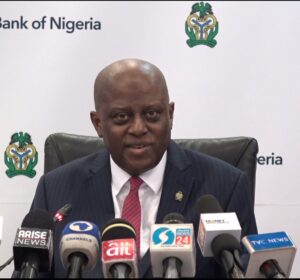
The monetary policy committee (MPC) of the Central Bank of Nigeria (CBN) has raised the monetary policy rate (MPR), which benchmarks interest rates in the country to 27.50 percent — from 27.25 percent.
Olayemi Cardoso, CBN’s governor, announced the committee’s decision at a press conference on Tuesday after the panel’s 298th meeting in Abuja.
He said the committee increased the MPR by 25 basis points.

2025: How To Plan A Budget For The Upcoming Year

Ruud van Nistelrooy Opens Up on Hurtful Manchester United Exit Before Taking Leicester City Job

Obasanjo would have died under Abacha if not for me -Gowon

Why I don’t trust any public institution in Nigeria – Fisayo Soyombo

Minimum Wage: Cross Rivers Workers to embark on indefinite strike

Bayer Leverkusen Forward Victor Boniface Faces Possible Sanction for Reckless Driving Incident

Radda approves N70,000 minimum wage for Katsina workers

PH refinery has not commenced bulk sales – NNPC

CBN issues Dec. 1, ultimatum against banks, ATM delays



